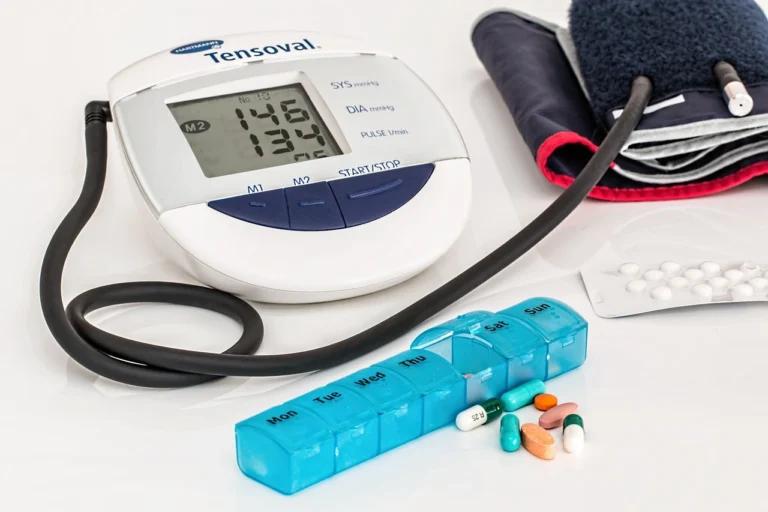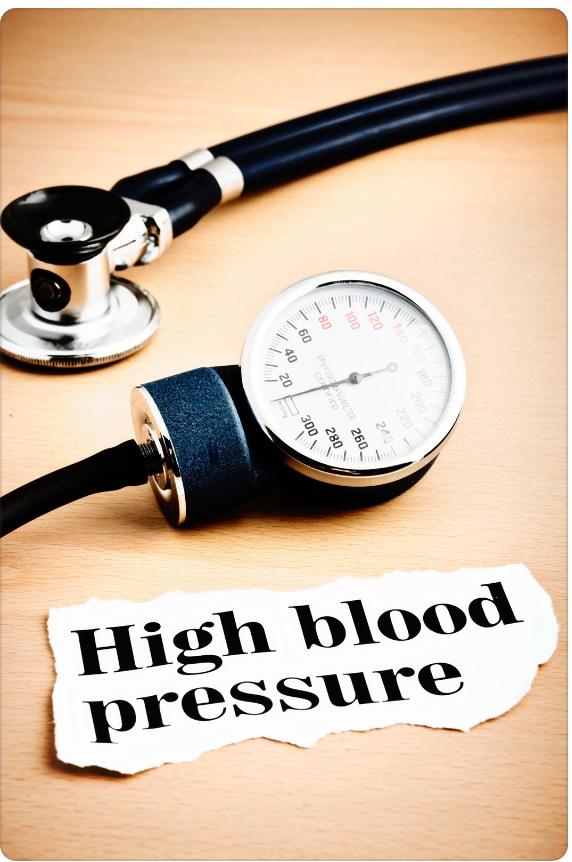Beta-blockers are prescription-only medications widely prescribed for people with cardiovascular disease, to treat heart problems and high blood pressure. Basically they work by making your heart beat slower and with less force to improve your heart health. Let’s take a deeper look into some common questions you may have about beta-blockers.
What are the uses of Beta-blockers?
Beta-blockers can be used to treat a range of heart problems:
- High blood pressure (hypertension) – after other medicines have been tried
- Angina – chest pain caused by reduced blood flow to the heart
- Congestive heart failure – where the heart can not pump enough blood around the body
- Atrial fibrillation – irregular heartbeat
- Heart attack (myocardial infarction) – an emergency where the blood supply to the heart is suddenly blocked
Beta-blockers are also used to:
- Prevent migraines
- Treat an overactive thyroid (hyperthyroidism)
- Treat anxiety
- Treat glaucoma (with eyedrops)
How do Beta-blockers work?
Their full name is beta-adrenoceptor blocking agents and the name originates from the way they work. Other names for beta-blockers include beta-antagonists, beta-adrenergic blocking agents and beta-adrenergic antagonists.
They function by blocking adrenaline and noradrenaline from attaching to some of their target sites, called beta receptors. Adrenaline and noradrenaline are hormones that prepare the muscles in the body for work and strain. Beta receptors are present all around your body. As a result, beta blockers can help with many different health conditions, but we will focus on the heart.
Beta-blockers slow your heart down and make it beat with less force. The heart does not exert itself as hard and less oxygen is used. Such effects are helpful to protect against further heart attacks if you have angina or heart failure.
Beta-blockers can impact the movement of electrical signals through your heart. This is useful if you have an irregular heart rhythm.
The production of angiotensin II is blocked by beta-blockers. This is a hormone that makes blood vessels contract, making them narrower. By blocking angiotensin II your blood vessels can relax and widen, blood can flow through more easily, helping to lower your blood pressure.
Are there different types of Beta-blockers?
There are mainly two types of Beta-blockers, categorised as non-selective and selective. They block three types of beta-receptors in the body: Beta-1 receptors, which are present mainly in the heart, beta-2 receptors which are present mainly in other organs and beta-3 receptors, which break down fat cells.
Atenolol and bisoprolol are two of the most well-known beta blockers. They are selective beta-blockers, frequently used by doctors because their activity targets primarily the heart and has less prominent effects on other parts of the body. By comparison non-selective beta-blockers, such as propranolol target other areas of the body, as well as the heart, in blocking adrenaline and noradrenaline. This can give rise to side effects, such as cold hands and a tendency toward asthma attacks.
Each type of beta-blocker has its own features and benefits and will be prescribed for you depending on your health condition. Beta-blockers may be used in combination with other antihypertensives, including ACE inhibitors and calcium channel blockers.
What are the common beta-blockers available?
- Atenolol (brand names include Tenormin)
- Propranolol (brand names include Inderal)
- Bisoprolol
- Carvedilol
- Acebutolol
- Labetalol
- Nadolol
- Pindolol
- Sotalol
- Metoprolol
- Nebivolol
Who shouldn’t be prescribed a beta blocker?
There are some conditions in which beta-blockers are not recommended. This includes uncontrolled heart failure, hypotension (low blood pressure) and certain problems with the rhythm of your heart e.g. palpitations, arrhythmias, or bradycardia (a very slow heart rate). If you have been diagnosed with asthma or another lung disease, beta blockers are not normally prescribed because they can occasionally provoke severe asthma attacks. If you have serious blood circulation problems in your limbs (such as Raynaud’s phenomenon, which may make your fingers and toes tingle or turn pale or blue) your doctor will consider the balance of benefits versus risks.
What are the side effects of Beta-blockers?
Beta-blockers are one of the most commonly prescribed medications for heart conditions. They’re effective, safe and affordable enough that they can often serve as a first-line treatment option. But what side effects can you expect from taking them.
The most common side effects of beta-blockers are:
- Fatigue and dizziness – symptoms linked to low blood pressure (hypotension) can be activated by beta-blockers due to slowing down your heart rate
- Poor circulation – beta-blockers make it harder for blood to reach your hands and feet causing coldness or tingling in those areas
- Gastrointestinal symptoms – nausea and constipation can be relieved by taking beta-blockers with food
- Sexual dysfunction – erectile dysfunction is a common side effect of medications that lower blood pressure
- Weight gain – nonselective beta-blockers tend to cause weight gain. The cause is not understood fully but may be linked to how beta-blockers affect your metabolism
Other less common side effects include:
- Difficulty breathing – lung muscle spasms can be caused by beta blockers, making it troublesome to breathe. This is more likely to be seen in people who have lung conditions
- Low blood sugar (hypoglycemia) – beta-blockers may reduce the warning signs of a low blood sugar level
- Depression, insomnia and nightmares – nonselective beta-blockers are more likely to cause these side effects
- Signs of heart problems – shortness of breath with a cough that gets worse with physical activity, swollen legs or ankles, chest pain or an irregular heartbeat
- Signs of lung problems – shortness of breath, wheezing and tightening of your chest
- Signs of liver problems – yellow skin or the whites of your eyes turn yellow
Do beta-blockers interact with other medications?
Just like other drugs, beta-blockers can interact with other medications. Some of these include:
- Antidepressants
- Anti-allergy medication
- Statins
- Diabetes medications
- Decongestants and other cold medications
- Anti-ulcer medications
- Asthma and COPD medications
- Nonsteroidal anti-inflammatory drugs (NSAIDs)
- Certain antibiotics, including rifampicin
- Muscle relaxants
- Medication for Parkinson’s disease
- Medications used to treat high blood pressure, chest pain and irregular heartbeat
You should always inform your doctor about all prescription medications, over-the-counter meds and supplements you take, to avoid drug interactions.
How do I take my beta-blocker?
Take your beta-blocker precisely as prescribed by your health professional.
- Aim to take your medication at roughly the same time each day
- Space your doses out if you take your medication more than once each day
- If you miss a dose, take it as soon as you remember, unless it’s almost time for the next dose
- If you miss a dose do not double-up your dose or take extra medicine
- Do not suddenly stop taking your medication unless it is under the guidance of your healthcare provider. Abruptly stopping your beta-blocker medication may cause heart palpitations, raised blood pressure or chest pain (angina)
Are beta-blockers safe to take during pregnancy?
Beta-blockers are a class of medication that can have both benefits and risks to consider when taken during pregnancy. Some may be safe, while others could cause harm to unborn babies. It’s important you talk with your doctor about this before starting any medications (especially if breastfeeding).
Beta-blockers lower your blood pressure by blocking the effects of stress hormones on your heart. Your doctor’s instructions should always be followed when using beta-blockers. Keep your doctor up to date with the health conditions you have and the medication you are taking.
Sources
Medical Disclaimer
NowPatient has taken all reasonable steps to ensure that all material is factually accurate, complete, and current. However, the knowledge and experience of a qualified healthcare professional should always be sought after instead of using the information on this page. Before taking any drug, you should always speak to your doctor or another qualified healthcare provider.
The information provided here about medications is subject to change and is not meant to include all uses, precautions, warnings, directions, drug interactions, allergic reactions, or negative effects. The absence of warnings or other information for a particular medication does not imply that the medication or medication combination is appropriate for all patients or for all possible purposes.









